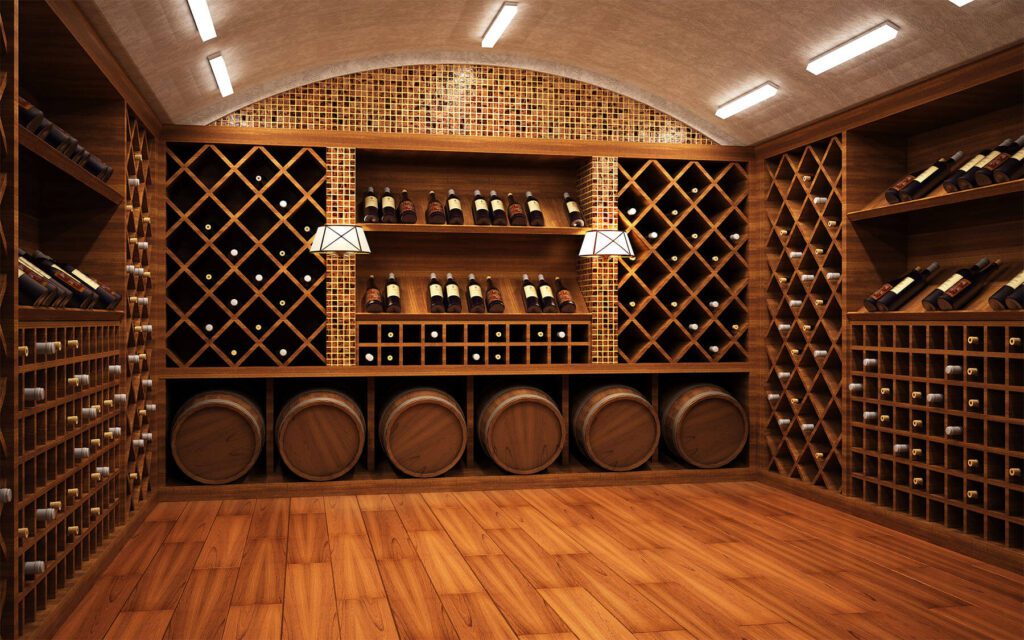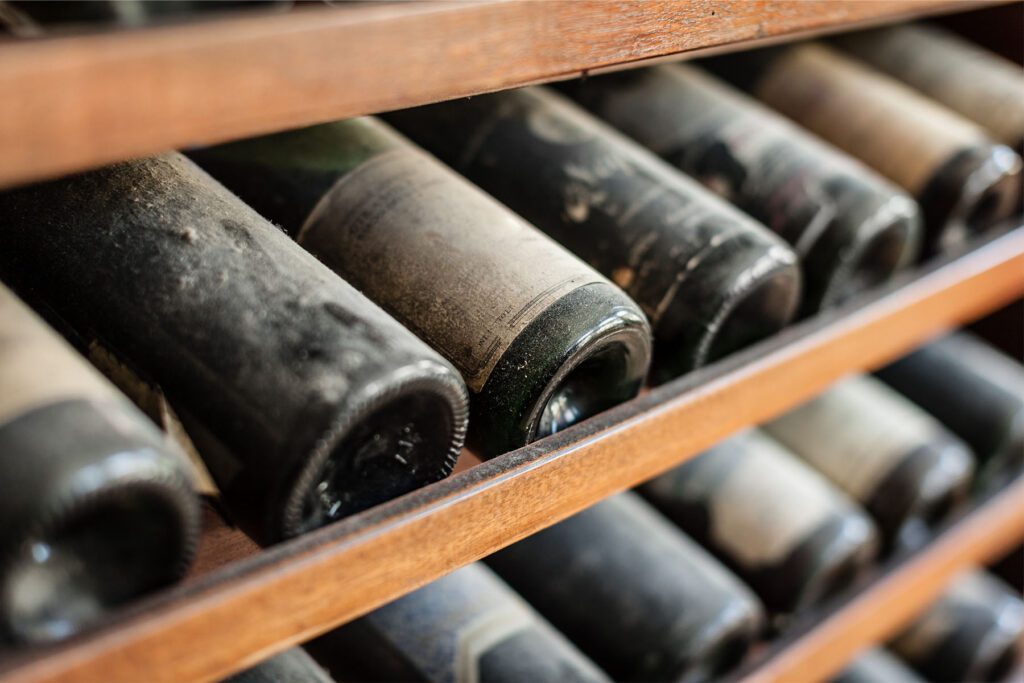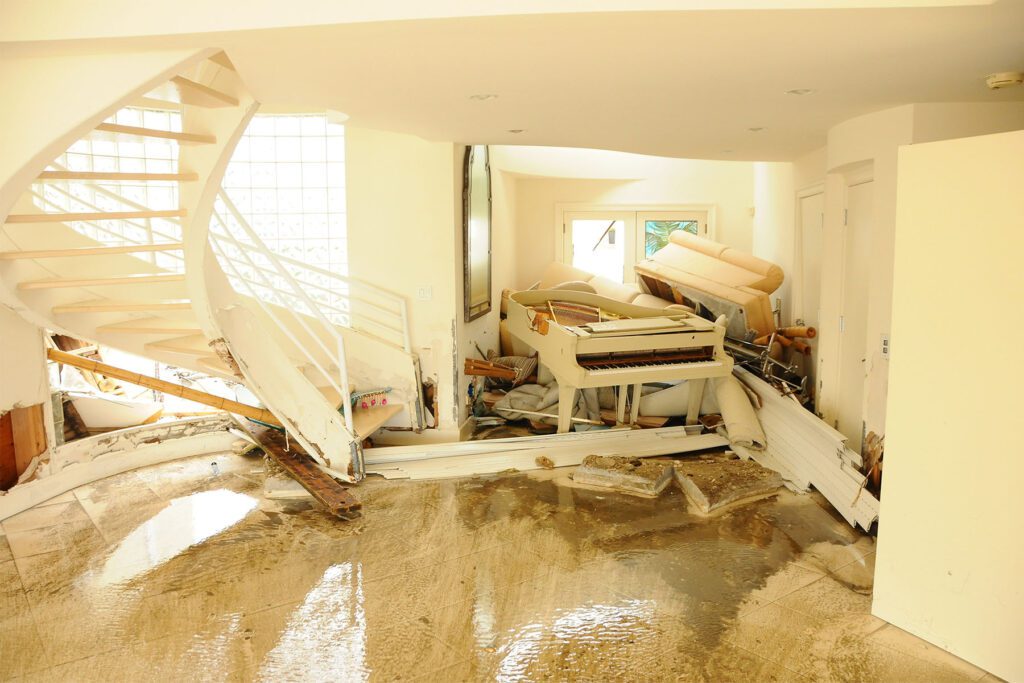Collectors are passionate people who invest in their interests.
It takes a lot of time, commitment, and money to build a serious wine collection. And to the connoisseur, it’s more than just wine. From the vintage and style to its region of origin and producer, every bottle has a story waiting to be uncorked. The years of waiting patiently as each wine ages to perfection are an investment too.
A wine cellar and its contents can be very personal — often, one of a kind. According to Dan Frankel, principal of Ellis Insurance Agency, the average wine collection is worth about $200,000. It makes sense that something so valuable should be insured from damage or loss. Even more so when you consider that practically all the value lies in its constant upkeep – damaged?
Not all wines or collections need to be insured, and not all coverage packages are created equal. What should you consider before purchasing a wine insurance policy?

What Is Wine Insurance?
Wine insurance is simply a contract or agreement that you enter into with a company or agency that guarantees compensation for any damage or loss to your collection. In return, you make a payment of a premium.
Many collectors mistakenly assume that their wine is already covered by their homeowners’ insurance. But standard homeowners’ policies do not have special sub-limits of coverage for wine or fine spirits. And while you can buy additional protection with something called a Personal Articles Floater, you would still have to pay a deductible when making a claim.
For collections too important to risk losing, the best practice is to have a policy that’s designed specifically for fine wine.

Types of Wine Insurance
As every collection is different, there are several types of coverage available. Some collectors have prized cellars worth millions. Others may have just a few treasured bottles that they want protected.
The cost of your wine insurance policy is determined by several factors, including the size of the collection, its market value, the risk exposure of your cellar and how well you maintain it.
Each package has its pros and cons; but no matter what, you’re always better off having some level of wine cellar insurance or a wine insurance policy than none.
Stand-Alone Valuable Articles Wine Insurance Policy
While a homeowner’s policy is very limited in what it covers, a stand-alone valuable articles policy offers coverage for specific luxury items and usually doesn’t carry a deductible.
Stand-alone wine policies cost about 60-80 cents for every $100 worth of wine. If your wine collection is worth $100,000, your annual insurance premium might be around $700.
Scheduling Wine Insurance Policy
If your collection contains individual high-value bottles, you may wish to insure each one separately. This more nuanced approach is known as “scheduling” and is the more accurate way to protect large wine collections because it looks at each bottle individually for its replacement value. Insurance experts recommend insuring a collection on a bottle-by-bottle basis if the wines are worth at least $500 per bottle and if you plan on storing it for the long haul.

Blanket Wine Insurance Policy
Blanket insurance coverage is more of a “catch-all” approach that works best for smaller wine collections of lower value and is great if you regularly drink your bottles. This plan offers you an aggregate amount of coverage (e.g., $25,000) with a per-bottle limit. You don’t necessarily have to notify your broker every time you buy, sell, or enjoy a bottle. As long as you stay under your aggregate and per-bottle limit, your revolving wine collection is covered.
What Does Wine Insurance Cover?
Wine insurance is surprisingly comprehensive, covering everything from theft to lost or misplaced bottles (which is more common when your collection is managed off-site). Most policies also cover accidental breakage during transit, and, of course, any damage that happens because of natural disasters such as fire, earthquakes or hurricanes.
In addition, most wine insurance policies cover mechanical failures in the storage environment such as extended power outages, a broken refrigeration unit, plumbing problems, and even sewer-line backups.
Certain things are not covered. For example, deteriorated and damaged bottles that are a result of neglect would not be protected under a wine insurance policy. Faded labels and dried-out corks due to poor storage conditions also do not qualify. In many cases, wine insurance companies will even want to see your storage environment beforehand to approve its viability.
Oh, and it’s worth mentioning that once you open a bottle of wine to drink, it is no longer insured!
The Best Wine Insurance Companies
Chubb
Chubb has been in business since the late 1800s and is the world’s largest insurance agency, now operating in 54 countries. They offer both itemized and blanket coverage for your wine collection, automatically cover newly acquired bottles and will reimburse up to 150% of your wine’s value to account for any increase in market price after a loss.
Chubb also works with wine professionals who can document your inventory and assess its value. They’ll even review the setup of your cellar, look for potential risk factors and suggest improvements to better protect your wines.
AIG
AIG offers worldwide coverage for your wine collection, including while in transit from one location to the next — great for someone who has plans to relocate their collection. Like Chubb, there are no deductibles to pay, and AIG will compensate up to 150% of the lost wine’s value to make up for market increases. They also offer consulting services to help you plan, build and manage your cellar/collection.
American Collectors
American Collectors is a relatively new firm (founded in 1976) that caters to the “American Collector” and insures everything from luxury cars to firearms to wine. Their wine insurance policy protects everything from accidental breakage to “mysterious disappearance” of bottles. However, there is a deductible, and they reimburse for lost bottles at a much lower 108% inflation rate.
When to Invest in Wine Insurance
There’s no specific value required to warrant wine insurance. Rather, it’s a simple question: “Can I risk losing this particular wine, or my entire collection?” If the answer is “no,” then it’s time to protect your investment.
Additionally, if your collection resides in a place where the chance of something catastrophic happening is much higher than normal, it’s probably a good idea to purchase a wine insurance policy or wine cellar insurance.
Keep in mind that some insurance agencies do have a minimum value requirement. For example, The Horton Group will only insure wine collections worth $85,000 or more.

More Tips for Protecting Your Wine Collection
Ideally, insurance is a last resort — something you never have to make a claim on. But it pays to be proactive with a wine collection. Set yourself up for success by starting with the best long-term storage environment available.
Learn more about Wine Guardian’s wine cellar cooling units and how our professional designers and partners can help with the planning and construction, so you can focus on the fun part — building a collection worthy of protecting.

